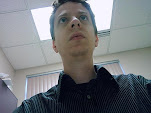The Indie Experiment
I will admit, dear reader, that I am one of those people who has looked down on indie publishing for years and years. And by indie, I mean self. I assumed it was the realm of writers who lacked the talent to make it in the world of legitimate publishing, who decried the gatekeepers and networks and claimed there was an inner circle of publishers who kept their brilliant writing from the public market because... well... just because. I assumed these people simply couldn't see the failing of their own work, and were willing to pay good money to see their names in print.
I had a harsh view.
Over the years, that view has evolved. Mostly because I've seen friends get fucked over by the publishing industry, I've seen truly great books fail, and I've seen mediocre books rise to the top on little more than buzz and packaging. I've come to accept that book quality simply doesn't equal publishing success. I could see, clearly, that there were many variables in the publishing process. Any one of those variables could sink a good book. Some of the best writers I know are struggling to stay in the mid-list.
This got me to thinking about indie publishing. After all, there have been a number of success stories out of the selfie world. Not just blockbuster success, like Wool or 50 Shades, but people who are simply supplementing their income or making good mid-list kind of numbers by producing their own stuff. And following the end of the Veridon series, I had a number of short stories that hadn't been seen in the US, all of which served as the foundation for Heart of Veridon. There was some small demand to see these stories. I also had a novella that hadn't landed in any of the short story markets. The rejections had all been nice, but it was an odd length to place. So I decided to do a little experiment. I decided to publish these things myself.
Formatting took time, as did layout. These are not things I'm naturally inclined to do, and there's a lot of nuance in laying a book out that most folks probably don't recognize. I wrote up some author's notes for the Veridon stories, then added two science fiction stories that had also seen little distribution in the US. I called the final produce Bones of Veridon.
I have to pause to talk about covers. I was fortunate enough to get some help from a friend who owns her own studio, who did an amazing job with my covers. We were able to get covers for both of the works that really evoked the stories without being too fancy. If you need a cover, I would happily recommend Mez. She's brilliant.
So, I got Bones of Veridon out there and made some sales. I was encouraged. Not 'hey, my money problems are solved!' levels of encouragement, but units moved. I did twice weekly bumps on my various social feeds, and that always sold a couple books. I went ahead and put the novella out. That didn't go as well, not by a long shot. There was no established fan base. Plus I dropped that title too close to Bones of Veridon. The people who might have been interested were still gorging on Bones, I think. But I'm learning. The next one will be better timed, and hopefully different enough to draw in people from outside my usual readership.
This doesn't mean that I've given up on traditional publishing. Not by a long shot. I have one series out to editors, and another pitch that I'm writing for a YA title. I think traditional publishing is still the backbone of the genre, and will be for a long time to come. But I also think that indie publishing is a viable outlet, and one that every author should at least look into. Unless you're one of the big names who can hand literally anything they write over to one of the houses and start a bidding war, some of your work isn't going to fit into the traditional expectations of the editors and agents who guide this industry. That doesn't mean it's bad, or unworthy of publication. Independent publication lets you experiment with things that the more risk-averse industry types won't go near. It lets you expand your reach as an author, and establish a little more control over your own career. Plus it's terribly satisfying to get stories into the hands of readers.
That's what this entire business is about, right? Telling stories? And if you have a good story, there's no reason you shouldn't be allowed to tell it. So write, and publish, and let the readers decide.
I'd be a fool if I didn't include links to those titles I put out, right? So here they are:
Bones of Veridon
Memories of Copper and Blood


